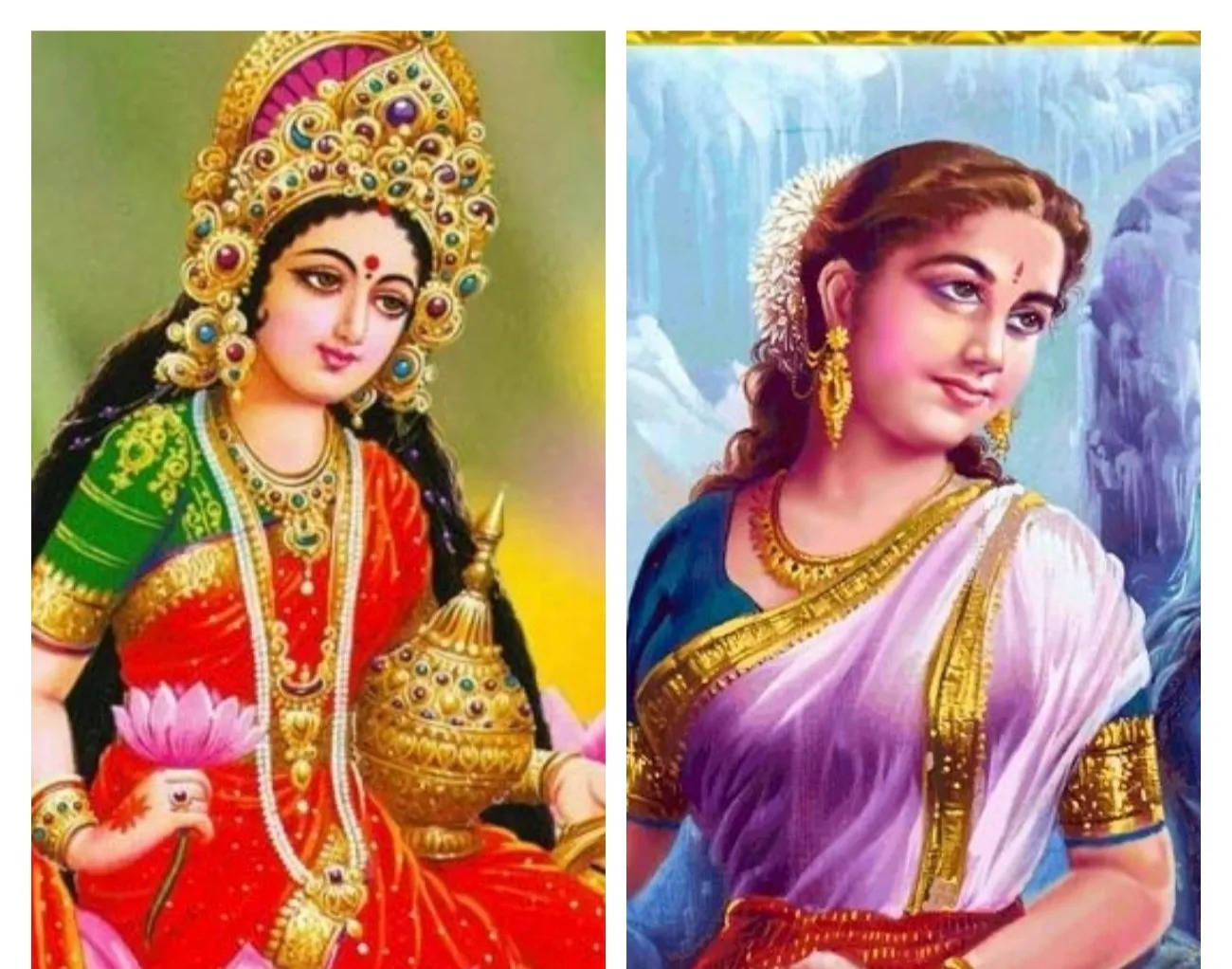Who Is The Daughter Of Lord Vishnu ?
Love Amidst Divine Intervention: The Tale of Lord Murugan

Lord Vishnu, the preserver in Hindu mythology, has two illustrious daughters, Devasena and Valli, who hold significant places in the pantheon. Devasena, born to Lord Vishnu and his divine consort Lakshmi, is renowned for her beauty, strength, and valour. She is celebrated as the consort of Lord Murugan, the son of Lord Shiva and Parvati. Meanwhile, Valli, also born to Lord Vishnu and Lakshmi, was initially a hunter's daughter but was later adopted by the king of the gods, Indra. Despite her humble origins, Valli is depicted as a goddess of simplicity and innocence, yet possessing great courage and resourcefulness. Both Devasena and Valli are revered for their unwavering devotion to Lord Murugan, and their stories are deeply intertwined with his.
Legend has it that the paths of Devasena, Valli, and Lord Murugan converged during the time when Murugan, still a youth, was sent to live in the forest among sages. There, he encountered the two celestial maidens, and love blossomed between them. However, Lord Shiva, Murugan's father, had other plans. He desired Devasena as a bride for his son due to her royal lineage. Though Valli was disheartened, she gracefully acquiesced to Lord Shiva's wishes, allowing Devasena to marry Murugan first, but not without asserting her own claim to him in the future.
Murugan grew into a formidable warrior and eventually vanquished the demon Tarakasura, marking a significant triumph. Following his victory, he returned to the forest to wed Devasena, fulfilling his father's desires. Nevertheless, his heart remained tied to Valli, and in due course, he also took her as his wife.
Devasena and Valli are venerated as goddesses representing love, marriage, and fertility, embodying different aspects of feminine strength and devotion. They are revered not only as consorts of a powerful deity but also as protectors of women and children, symbolizing the nurturing and protective qualities inherent in motherhood.
Their stories serve as timeless allegories, reflecting various aspects of human relationships and the complexities of love. Devasena's sacrifice and Valli's patience showcase the virtues of selflessness and acceptance, while Lord Murugan's eventual union with both exemplifies the fulfillment of divine will and the triumph of love over obstacles.

In temples across the Hindu world, devotees offer prayers and rituals to honor Devasena and Valli, seeking their blessings for happiness, prosperity, and marital harmony. The narratives of these goddesses continue to inspire countless individuals, reminding them of the enduring power of love and the strength found in unity.
Beyond their roles in mythology, Devasena and Valli embody archetypal qualities that resonate with believers on a deeply personal level. Devasena represents the regal and powerful aspect of femininity, while Valli symbolizes the simplicity and purity of heart. Together, they encompass a spectrum of virtues that are celebrated and revered in Hindu culture, serving as guiding lights for those who seek balance and fulfillment in their lives.
The stories of Devasena and Valli, intertwined with the saga of Lord Murugan, weave a tapestry of devotion, sacrifice, and ultimately, the triumph of love. Through their tales, devotees find solace, inspiration, and a profound connection to the divine, reaffirming their faith in the eternal principles that govern the universe.



